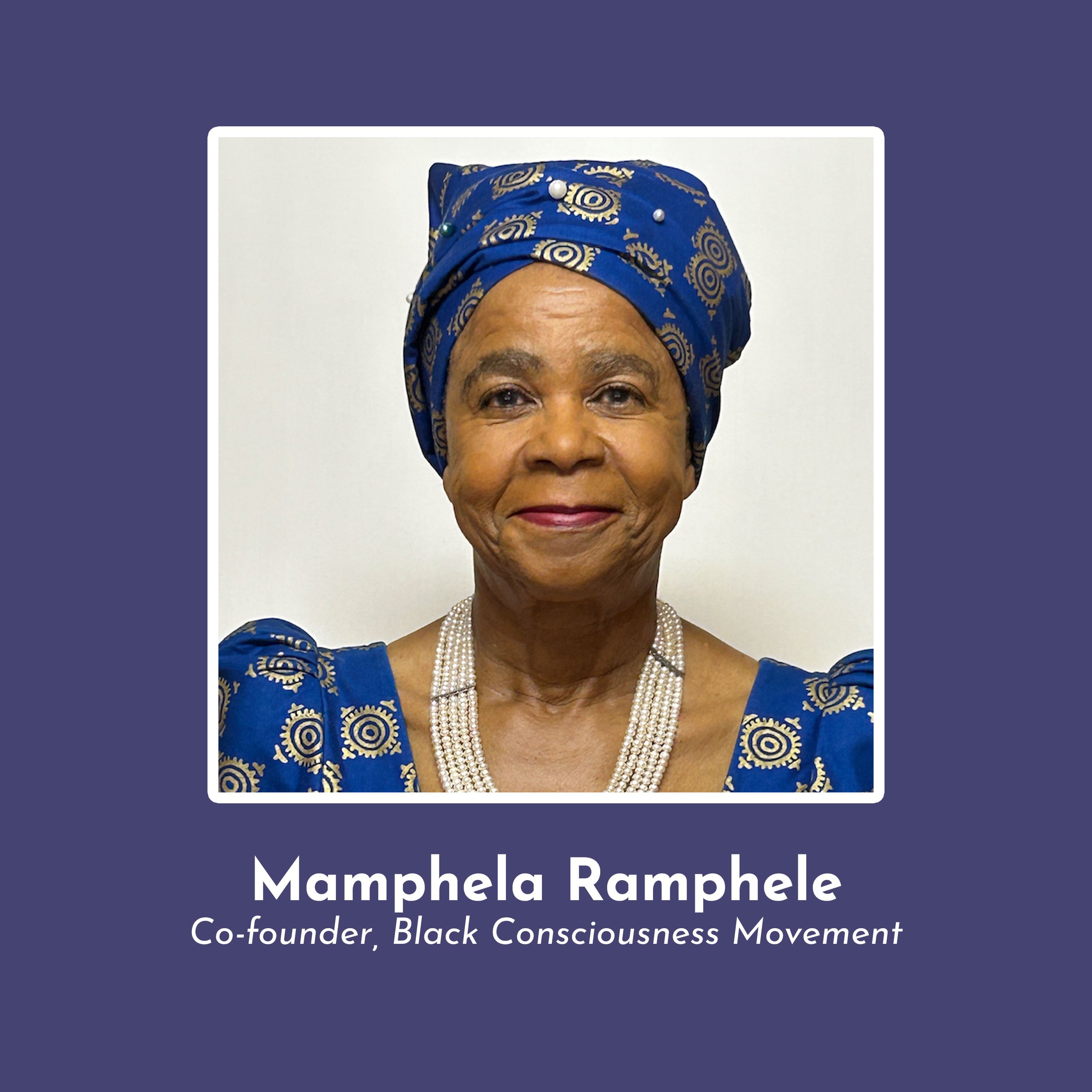Mamphela Ramphele: “The Art of Movement Building: Personal Liberation for Public Change”
Episode 137
August 21st, 2024
(Conversation recorded on July 17th, 2024)
Show Summary
Addressing the risks we face on a global scale is a challenge that can feel both enormous in execution and personally daunting. When it comes to finding the motivation and inspiration to do such work, one of the best sources of insight comes from the visionaries and activists who have come before us, who know what it takes to battle – and successfully transform – entrenched systems of power. What advice and wisdom can we learn from their stories and experience?
In this episode, Nate is joined by Mamphela Ramphele, co-founder of the Black Consciousness Movement, which was instrumental in building the ideological foundation that galvanized the struggle for Liberation under the apartheid regime in South Africa, ultimately leading to its dismantling. She shares her wisdom gained from over five decades of movement building and liberation as a means of structural change; something that is deeply relevant to positive outcomes during the coming Great Simplification.
What does it mean to be self-liberated and what role does this process play in propeling shifts in cultural values? How can we work across and within generations to create movements that transcend immediate and near term-goals? Is it possible to create policies founded on a deeper set of values- - and could doing so encourage more people to become ‘Guardians of the Planet’?
About Mamphela Ramphele
Dr. Mamphela Ramphele has had a celebrated career as an activist, global public servant, academic, businesswoman and thought leader. Dr. Ramphele was co-founder of The Black Consciousness Movement with Steve Biko that reignited the struggle for freedom in South Africa. She holds a PhD in Social Anthropology, is a medical doctor, and is the co-founder of ReimagineSA, the former co-president of The Club of Rome, and is the Chair at the Desmond Tutu IP Trust.
Watch on YouTube
Show Notes & Links to Learn More
00:00 - Dr Mamphela Ramphele work + info, The Black Consciousness Movement, ReimagineSA, Club of Rome, Desmond Tutu IP Trust
*Note: Whilst many publications refer to the Black Consciousness Movement as an “anti-apartheid” struggle, Dr Ramphele has noted that it should more accurately be referred to as a “struggle for Liberation”.
01:07 - Apartheid
04:45 - Demographics during apartheid
08:25 - Stephen Biko on the philosophy of Black Consciousness
09:26 - Owen Horwood
10:46 - University college at Westville + University of Zululand
11:10 - Stephen Biko’s writings
16:40 - Mandela in jail + Tambo in exile + Sobukwe in jail
18:00 - Frantz Fanon
18:13 - Barney Pityana
18:32 - Censorship during apartheid
18:40 - The Black Power Movement + student movements in US + liberation movements in Africa
19:25 - Dr Ben Khoapa
21:56 - Craig Williamson
22:22 - Desmond Tutu + South African Council of Churches + British Council of Churches
25:00 - Demond Tutu’s Ubuntu philosophy
25:30 - Anglican church and the Black Consciousness Movement
28:38 - Words vs Reality Earth Day talk
29:20 - Early African civilisations + mathematics in ancient Egypt + astronomical alignment of pyramids + egyptian astronomy
31:38 - 11 official languages of South Africa
32:00 - African National Congress
32:54 - Things are worse in South Africa today than they were in 1994
33:12 - Mandela’s presidency
34:50 - Flooding in South Africa + Droughts in Limpopo + Food insecurity due to droughts Southern Africa
35:28 - Youth unemployment South Africa + distribution of educational attainment
41:31 - LEAP school system
45:20 - We are consuming more than our planet can sustain
45:58 - Multilateral institutions created by victors of WWII
46:48 - Casey Camp-Horinek, TGS Episode
48:40 - Genocide in Americas + genocide in Namibia + Opium War
50:20 - Early Dutch settlers in South Africa + indigenous relationship to Table Mountain
50:44 - Global Commission on Economics of Water
51:52 - Personhood of rivers New Zealand
52:20 - Indigenous people make up 6% of population, but take care of over 80% of biodiversity
53:49 - Agriculture and the displacement of indigenous communities: Brazil + Indonesia
56:35 - African vernacular huts + energy efficiency of traditional homes in South Africa
1:01:46 - Planetary guardians
1:04:24 - UN Decade of Sciences
1:10:50 - Sandrine Dixson-Declève
1:11:05 - Africa-EU partnership
1:11:40 - Global Compassion Coalition
